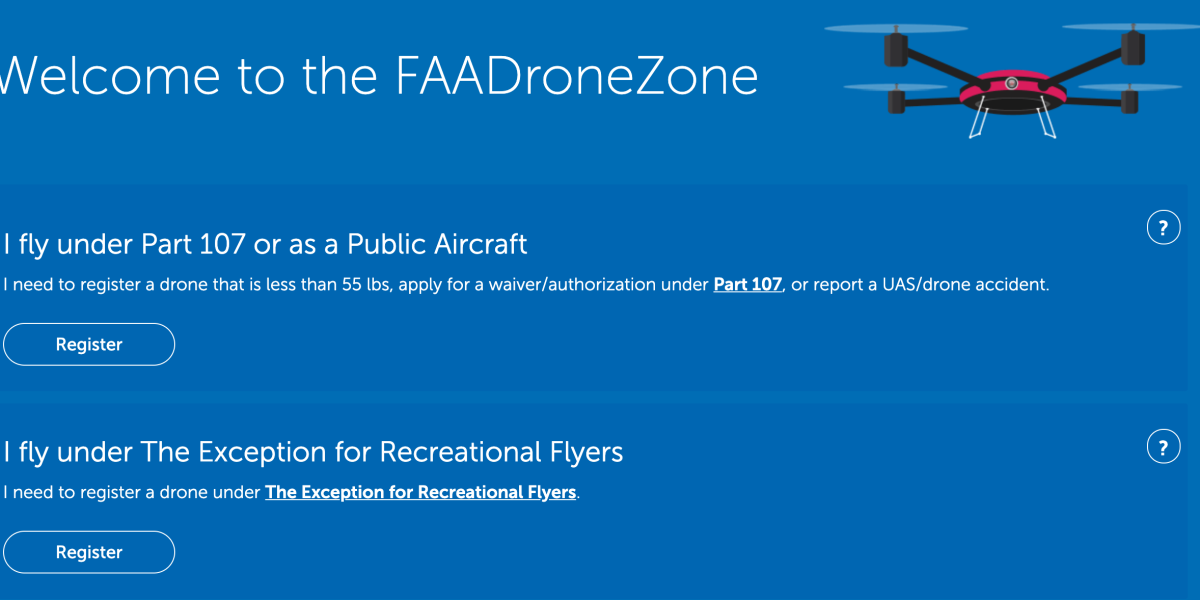Do I Need To Register My Dji Spark
Do I need to register my drone? Probably…

Are you a drone pilot in the US, Canada, or one of the EU countries? If you haven't yet registered your drone, now's a great time to do so.
First of all, this is directed mostly at people who are flying drones weighing 250 grams or more (though yes, there are exceptions we'll get to). Regulators want you to register your drone, and they've made it pretty easy. And while we understand there are some who believe this may be an invasion of privacy, this article won't go down that road. The regulations require most drones to be registered, and we recommend following the rules.
So let's dive in.
Registration is mandatory
Yes, in a growing number of places, it's the law. You need to register your drone and put that registration number somewhere visible on the machine. Your name is associated with that registration number, but only people within the regulatory agency or law enforcement will in theory be able to access the database with your personal details. Odds are, that will never happen – and only if there's a really good reason. (And remember, that reason might be a flyaway where someone discovers your drone and turns it over to authorities. Wouldn't you want some sort of identifier on it?)
The good news is that regulators have made the registration of drones a very simple process.
Getting registered
If you live in the United States, you'll register through the FAA. You'll need to register either under Part 107 (commercial operations) or under the Exception for Recreational Flyers. If you have a sub-250 gram drone like the Mini 2, you'll only need to register if you plan on using it for commercial operations. Any drone registered for commercial operations, in case you're wondering, can be flown recreationally (meaning you don't need to register it twice).
You'll find the page above right here. A registration costs $5 regardless of whether the drone is being used for commercial or recreational purposes. Once registered, you can't switch types (from recreational to commercial) without paying an additional $5. Drone registrations are valid for three years.
If you happen to be flying a drone that weighs more than 55 pounds, you'll need to do so using the same paper process that's used to register manned aircraft, and you'll receive an "N-" number.
In order to register a drone in the US, you must be:
- 13 or older (if not, someone 13 or older must do the registration)
- A US citizen or legal permanent resident
- If you're from outside the US but conducting operations there, the registration will be viewed by the FAA as recognition of ownership of the drone in question
TRUST
That's an acronym for The Recreational UAS Safety Test, and passing this test will become mandatory in the future for recreational pilots. The FAA is likely going to be making further announcements on this in June, and we'll explore it in more detail as it becomes closer.
Once it's in effect, pilots will be expected to pass the test and carry that certificate while flying.
Canada
In Canada, the rules are somewhat similar but not identical. First off, Transport Canada warns you that flying a non-registered drone could bring you fines of up to $1,000 CDN for an individual and $5,000 for a corporation. So, given that it's just $5 CDN to register a drone, it seems like a no-brainer.
Drones under 250 grams do not require registration in Canada, even if you're planning on using them for commercial shoots. Transport Canada says it will only take about three minutes to register a drone, and we can confirm it's a really fast process.
If your drone weighs 55 pounds or more, you'll need a Special Flight Operations Certificate, which is a much more involved process than a standard registration.
You can find more information, and links to the registration portal, on this page.
European Union
We've had only a brief look at the situation for EU countries. But what we've seen indicates that the European Union Aviation Safety Agency requires registration of the drone pilot and not the drone itself. Here's what EASA has to say:
"Unless they are certified, drones do not need to be registered, butyou, as drone operator/owner, must register yourself. You do so with the National Aviation Authorityof the EU country you residence in. (https://www.easa.europa.eu/domains/civil-drones/naa)."
It continues, saying you do not need to register yourself if your drone:
- weighs less than 250g and has no camera or other sensor able to detect personal data; or
- even with a camera or other sensor, weighs less than 250g, but is a toy (this means that its documentation shows that it complies with "toy" Directive 2009/48/EC);
Here's a page offering links to all the national aviation authorities in the various EU countries.
DroneDJ's take
It's flying season. And there's no better time to check out your gear and ensure you're on board with the regulations in the country where you're flying. Registering your drone (or yourself), only takes a few moments and could help reunite you with a lost drone and avoid the possibility of hefty fines. For those in the US, this is also a good step as the new FAA Remote ID rule approaches.
By roughly October of 2023, all drones weighing 250 grams or more will have to have an internal Remote ID transmitter or an external module added to legacy drones. Part of how Remote ID works involves your drone being registered, so you'll be ready for that next step.
Subscribe to DroneDJ on YouTube for exclusive videos
Do I Need To Register My Dji Spark
Source: https://dronedj.com/2021/05/07/do-i-need-to-register-my-drone-probably/
Posted by: andersonnationce.blogspot.com

0 Response to "Do I Need To Register My Dji Spark"
Post a Comment